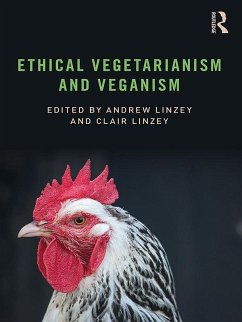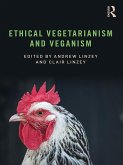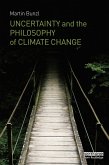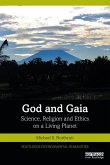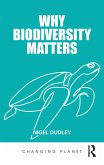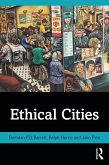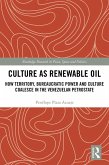Ethical Vegetarianism and Veganism (eBook, PDF)
Redaktion: Linzey, Andrew; Linzey, Clair
40,95 €
40,95 €
inkl. MwSt.
Sofort per Download lieferbar

20 °P sammeln
40,95 €
Als Download kaufen

40,95 €
inkl. MwSt.
Sofort per Download lieferbar

20 °P sammeln
Jetzt verschenken
Alle Infos zum eBook verschenken
40,95 €
inkl. MwSt.
Sofort per Download lieferbar
Alle Infos zum eBook verschenken

20 °P sammeln
Ethical Vegetarianism and Veganism (eBook, PDF)
Redaktion: Linzey, Andrew; Linzey, Clair
- Format: PDF
- Merkliste
- Auf die Merkliste
- Bewerten Bewerten
- Teilen
- Produkt teilen
- Produkterinnerung
- Produkterinnerung

Bitte loggen Sie sich zunächst in Ihr Kundenkonto ein oder registrieren Sie sich bei
bücher.de, um das eBook-Abo tolino select nutzen zu können.
Hier können Sie sich einloggen
Hier können Sie sich einloggen
Sie sind bereits eingeloggt. Klicken Sie auf 2. tolino select Abo, um fortzufahren.

Bitte loggen Sie sich zunächst in Ihr Kundenkonto ein oder registrieren Sie sich bei bücher.de, um das eBook-Abo tolino select nutzen zu können.
The protest against meat eating may turn out to be one of the most significant movements of our age. This book argues that vegetarians and vegans are not only protestors, but also moral pioneers. In terms of our relations with animals, it is difficult to think of a more urgent moral problem than the fate of billions of animals killed every year for human consumption. This book will be of interest to human geographers in the fields of animal-studies, and food consumption, and will appeal to animal protectionists, environmentalists, and humanitarians.
- Geräte: PC
- mit Kopierschutz
- eBook Hilfe
- Größe: 5.49MB
Andere Kunden interessierten sich auch für
![Ethical Vegetarianism and Veganism (eBook, ePUB) Ethical Vegetarianism and Veganism (eBook, ePUB)]() Ethical Vegetarianism and Veganism (eBook, ePUB)40,95 €
Ethical Vegetarianism and Veganism (eBook, ePUB)40,95 €![Uncertainty and the Philosophy of Climate Change (eBook, PDF) Uncertainty and the Philosophy of Climate Change (eBook, PDF)]() Martin BunzlUncertainty and the Philosophy of Climate Change (eBook, PDF)57,95 €
Martin BunzlUncertainty and the Philosophy of Climate Change (eBook, PDF)57,95 €![Heterotopia, Radical Imagination, and Shattering Orders (eBook, PDF) Heterotopia, Radical Imagination, and Shattering Orders (eBook, PDF)]() Heterotopia, Radical Imagination, and Shattering Orders (eBook, PDF)42,95 €
Heterotopia, Radical Imagination, and Shattering Orders (eBook, PDF)42,95 €![God and Gaia (eBook, PDF) God and Gaia (eBook, PDF)]() Michael S NorthcottGod and Gaia (eBook, PDF)37,95 €
Michael S NorthcottGod and Gaia (eBook, PDF)37,95 €![Why Biodiversity Matters (eBook, PDF) Why Biodiversity Matters (eBook, PDF)]() Nigel DudleyWhy Biodiversity Matters (eBook, PDF)23,95 €
Nigel DudleyWhy Biodiversity Matters (eBook, PDF)23,95 €![Ethical Cities (eBook, PDF) Ethical Cities (eBook, PDF)]() Brendan F. D. BarrettEthical Cities (eBook, PDF)39,95 €
Brendan F. D. BarrettEthical Cities (eBook, PDF)39,95 €![Culture as Renewable Oil (eBook, PDF) Culture as Renewable Oil (eBook, PDF)]() Penélope Plaza AzuajeCulture as Renewable Oil (eBook, PDF)46,95 €
Penélope Plaza AzuajeCulture as Renewable Oil (eBook, PDF)46,95 €-
-
-
The protest against meat eating may turn out to be one of the most significant movements of our age. This book argues that vegetarians and vegans are not only protestors, but also moral pioneers. In terms of our relations with animals, it is difficult to think of a more urgent moral problem than the fate of billions of animals killed every year for human consumption. This book will be of interest to human geographers in the fields of animal-studies, and food consumption, and will appeal to animal protectionists, environmentalists, and humanitarians.
Dieser Download kann aus rechtlichen Gründen nur mit Rechnungsadresse in A, B, BG, CY, CZ, D, DK, EW, E, FIN, F, GR, HR, H, IRL, I, LT, L, LR, M, NL, PL, P, R, S, SLO, SK ausgeliefert werden.
Produktdetails
- Produktdetails
- Verlag: Taylor & Francis eBooks
- Seitenzahl: 318
- Erscheinungstermin: 25. Oktober 2018
- Englisch
- ISBN-13: 9780429955822
- Artikelnr.: 54553221
- Verlag: Taylor & Francis eBooks
- Seitenzahl: 318
- Erscheinungstermin: 25. Oktober 2018
- Englisch
- ISBN-13: 9780429955822
- Artikelnr.: 54553221
- Herstellerkennzeichnung Die Herstellerinformationen sind derzeit nicht verfügbar.
Andrew Linzey is director of the Oxford Centre for Animal Ethics, and a member of the Faculty of Theology in the University of Oxford. He is a visiting professor of animal theology at the University of Winchester, and the first professor of animal ethics at the Graduate Theological Foundation, Indiana. Clair Linzey is the deputy director of the Oxford Centre for Animal Ethics. She holds an MA in theological studies from the University of St Andrews, and an MTS from Harvard Divinity School. She is currently pursuing a doctorate at the University of St Andrews on animal theology and Leonardo Boff.
Introduction: Vegetarianism as Ethical Protest Part One: Killing Sentient
Beings 1.1. Why Foods Derived from Animals are Not Necessary for Human
Health 1.2. Against Killing "Happy" Animals 1.3. Food Ethics and Justice
Toward Animals 1.4. Animals as Honorary Humans 1.5. Nonhuman Animals'
Desires and Their Moral Relevance 1.6. Why Vegetarianism Wasn't on the Menu
in Early Greece 1.7. The Ethics of Eating in "Evangelical" Discourse:
1600-1876 1.8. Myth and Meat: C. S. Lewis Sidesteps Genesis 1:29-30 1.9.
The Moral Poverty of Pescetarianism 1.10. There is Something Fishy about
Eating Fish, Even on Fridays: On Christian Abstinence from Meat, Piscine
Sentience, and a Fish Called Jesus Part Two: The Harms or Cruelty Involved
in Institutionalized Killing 2.1. "The Cost of Cruelty": Henry Bergh and
the Abattoirs 2.2. "All Creation Groans": The Live of Factory Farmed
Animals in the United States 2.3. L'enfer, c'est nous autres:
Institutionalized Cruelty as Standard Industry Practice in Animal
Agriculture in the United States 2.4. Welfare and Productivity in Animal
Agriculture 2.5. Taking on the Gaze of Jesus: Perceiving the Factory Farm
in a Sacramental World 2.6. "A Lamb As It Had Been Slain": Mortal (Animal)
Bodies in the Abrahamic Traditions 2.7. Cattle Husbandry without
Slaughtering: A Lifetime of Care is Fair 2.8. Are Insects Animals? The
Ethical Position of Insects in Dutch Vegetarian Diets Part Three: The Human
and Environmental Costs of Institutionalized Killing 3.1. Our Ambivalent
Relations with Animals 3.2. From Devouring to Honouring: A Vaishnava-Hindu
Therapeutic Perspective on Human Culinary Choice 3.3. The Other Ghosts in
Our Machine: Meat Processing and Slaughterhouse Workers in the United
States of America 3.4. Animal Agriculture and Climate Change 3.5. The
Intentional Killing of Field Animals and Ethical Veganism 3.6. How Visual
Culture Can Promote Ethical Dietary Choices 3.7. Leadership, Partnership
and Championship as Drivers for Animal Ethics in the Western Food Industry
Beings 1.1. Why Foods Derived from Animals are Not Necessary for Human
Health 1.2. Against Killing "Happy" Animals 1.3. Food Ethics and Justice
Toward Animals 1.4. Animals as Honorary Humans 1.5. Nonhuman Animals'
Desires and Their Moral Relevance 1.6. Why Vegetarianism Wasn't on the Menu
in Early Greece 1.7. The Ethics of Eating in "Evangelical" Discourse:
1600-1876 1.8. Myth and Meat: C. S. Lewis Sidesteps Genesis 1:29-30 1.9.
The Moral Poverty of Pescetarianism 1.10. There is Something Fishy about
Eating Fish, Even on Fridays: On Christian Abstinence from Meat, Piscine
Sentience, and a Fish Called Jesus Part Two: The Harms or Cruelty Involved
in Institutionalized Killing 2.1. "The Cost of Cruelty": Henry Bergh and
the Abattoirs 2.2. "All Creation Groans": The Live of Factory Farmed
Animals in the United States 2.3. L'enfer, c'est nous autres:
Institutionalized Cruelty as Standard Industry Practice in Animal
Agriculture in the United States 2.4. Welfare and Productivity in Animal
Agriculture 2.5. Taking on the Gaze of Jesus: Perceiving the Factory Farm
in a Sacramental World 2.6. "A Lamb As It Had Been Slain": Mortal (Animal)
Bodies in the Abrahamic Traditions 2.7. Cattle Husbandry without
Slaughtering: A Lifetime of Care is Fair 2.8. Are Insects Animals? The
Ethical Position of Insects in Dutch Vegetarian Diets Part Three: The Human
and Environmental Costs of Institutionalized Killing 3.1. Our Ambivalent
Relations with Animals 3.2. From Devouring to Honouring: A Vaishnava-Hindu
Therapeutic Perspective on Human Culinary Choice 3.3. The Other Ghosts in
Our Machine: Meat Processing and Slaughterhouse Workers in the United
States of America 3.4. Animal Agriculture and Climate Change 3.5. The
Intentional Killing of Field Animals and Ethical Veganism 3.6. How Visual
Culture Can Promote Ethical Dietary Choices 3.7. Leadership, Partnership
and Championship as Drivers for Animal Ethics in the Western Food Industry
Introduction: Vegetarianism as Ethical Protest Part One: Killing Sentient
Beings 1.1. Why Foods Derived from Animals are Not Necessary for Human
Health 1.2. Against Killing "Happy" Animals 1.3. Food Ethics and Justice
Toward Animals 1.4. Animals as Honorary Humans 1.5. Nonhuman Animals'
Desires and Their Moral Relevance 1.6. Why Vegetarianism Wasn't on the Menu
in Early Greece 1.7. The Ethics of Eating in "Evangelical" Discourse:
1600-1876 1.8. Myth and Meat: C. S. Lewis Sidesteps Genesis 1:29-30 1.9.
The Moral Poverty of Pescetarianism 1.10. There is Something Fishy about
Eating Fish, Even on Fridays: On Christian Abstinence from Meat, Piscine
Sentience, and a Fish Called Jesus Part Two: The Harms or Cruelty Involved
in Institutionalized Killing 2.1. "The Cost of Cruelty": Henry Bergh and
the Abattoirs 2.2. "All Creation Groans": The Live of Factory Farmed
Animals in the United States 2.3. L'enfer, c'est nous autres:
Institutionalized Cruelty as Standard Industry Practice in Animal
Agriculture in the United States 2.4. Welfare and Productivity in Animal
Agriculture 2.5. Taking on the Gaze of Jesus: Perceiving the Factory Farm
in a Sacramental World 2.6. "A Lamb As It Had Been Slain": Mortal (Animal)
Bodies in the Abrahamic Traditions 2.7. Cattle Husbandry without
Slaughtering: A Lifetime of Care is Fair 2.8. Are Insects Animals? The
Ethical Position of Insects in Dutch Vegetarian Diets Part Three: The Human
and Environmental Costs of Institutionalized Killing 3.1. Our Ambivalent
Relations with Animals 3.2. From Devouring to Honouring: A Vaishnava-Hindu
Therapeutic Perspective on Human Culinary Choice 3.3. The Other Ghosts in
Our Machine: Meat Processing and Slaughterhouse Workers in the United
States of America 3.4. Animal Agriculture and Climate Change 3.5. The
Intentional Killing of Field Animals and Ethical Veganism 3.6. How Visual
Culture Can Promote Ethical Dietary Choices 3.7. Leadership, Partnership
and Championship as Drivers for Animal Ethics in the Western Food Industry
Beings 1.1. Why Foods Derived from Animals are Not Necessary for Human
Health 1.2. Against Killing "Happy" Animals 1.3. Food Ethics and Justice
Toward Animals 1.4. Animals as Honorary Humans 1.5. Nonhuman Animals'
Desires and Their Moral Relevance 1.6. Why Vegetarianism Wasn't on the Menu
in Early Greece 1.7. The Ethics of Eating in "Evangelical" Discourse:
1600-1876 1.8. Myth and Meat: C. S. Lewis Sidesteps Genesis 1:29-30 1.9.
The Moral Poverty of Pescetarianism 1.10. There is Something Fishy about
Eating Fish, Even on Fridays: On Christian Abstinence from Meat, Piscine
Sentience, and a Fish Called Jesus Part Two: The Harms or Cruelty Involved
in Institutionalized Killing 2.1. "The Cost of Cruelty": Henry Bergh and
the Abattoirs 2.2. "All Creation Groans": The Live of Factory Farmed
Animals in the United States 2.3. L'enfer, c'est nous autres:
Institutionalized Cruelty as Standard Industry Practice in Animal
Agriculture in the United States 2.4. Welfare and Productivity in Animal
Agriculture 2.5. Taking on the Gaze of Jesus: Perceiving the Factory Farm
in a Sacramental World 2.6. "A Lamb As It Had Been Slain": Mortal (Animal)
Bodies in the Abrahamic Traditions 2.7. Cattle Husbandry without
Slaughtering: A Lifetime of Care is Fair 2.8. Are Insects Animals? The
Ethical Position of Insects in Dutch Vegetarian Diets Part Three: The Human
and Environmental Costs of Institutionalized Killing 3.1. Our Ambivalent
Relations with Animals 3.2. From Devouring to Honouring: A Vaishnava-Hindu
Therapeutic Perspective on Human Culinary Choice 3.3. The Other Ghosts in
Our Machine: Meat Processing and Slaughterhouse Workers in the United
States of America 3.4. Animal Agriculture and Climate Change 3.5. The
Intentional Killing of Field Animals and Ethical Veganism 3.6. How Visual
Culture Can Promote Ethical Dietary Choices 3.7. Leadership, Partnership
and Championship as Drivers for Animal Ethics in the Western Food Industry
